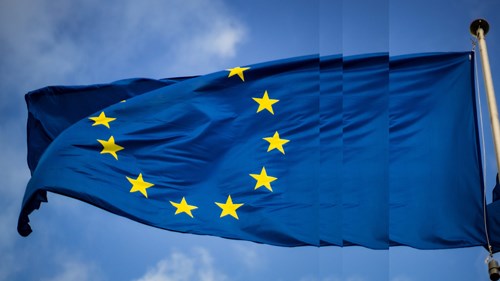News on the 'right to be forgotten'
Since the Court of Justice (ECJ) held in 2014 that there was a right to have links from search engine results erased in order to make it harder to find online contributions which breached the right to privacy, the content and scope of this ‘right to be forgotten’ has increasingly become the subject of further judicial debate. After clarification of the territorial scope of the ‘right to be forgotten’ (see also: The Internet forgets – but only in Europe ) and the constitutional-law classification by the German Federal Constitutional Court (see also: Germany’s Federal Constitutional Court issues landmark decision on the ‘right to be forgotten’ ), Germany’s Federal Court of Justice (FCJ) has now also been given the opportunity, for the first time since the entry into force of the GDPR, to comment on two cases on the right to erasure (‘right to be forgotten’), which has meanwhile been codified under Article 17 GDPR. The court makes noteworthy statements on both the general weighting of fundamental rights and the responsibility of search engine operators to assess all factors. The FCJ has also defined possible evaluation criteria, the compatibility of which with European law it now wishes to be examined by the ECJ by means of preliminary ruling proceedings.
I. Proceedings VI ZR 405/18 – decision of 27 July 2020
The first case concerned the action brought by the director of a regional association of a charitable organisation. He had unsuccessfully opposed the discoverability of an online article in the regional press in 2011, which reported on a financial deficit on the part of the association and the fact that the director, who was referred to by name, had called in sick shortly beforehand. Like the lower courts, the Federal Court of Justice has also rejected a right to erasure by arguing that the financial interests of the search engine operator under Article 16 of the Charter of Fundamental Rights (CFR), the public’s interest in information and the publisher’s freedom of expression and of the press under Article 11 CFR outweighed the claimant’s right to privacy under Articles 7 and 8 CFR in the specific case, also in view of the passage of time. It said that the publication of essentially sensitive, but very general, health data carried less weight than the public interest in the charitable association’s financial situation.
However, the general statements made by the FCJ on the ‘right to be forgotten’ are even more relevant than this assessment of an individual case. In line with the ECJ and the Federal Constitutional Court, the FCJ also required, in the context of the right to erasure under Article 17 GDPR, a comprehensive balancing of the conflicting fundamental rights positions outlined, taking into account the specific features of the case.
1. Consideration of fundamental rights on a case-by-case basis is open to decision
However, contrary to what the ECJ has pointed out on several occasions, the FCJ has now rejected a presumption of primacy of the right to privacy under Articles 7 and 8 CFR in the sense that it generally takes precedence over the interest in information, thereby making erasure of the contested search result the rule and, by contrast, refusal of erasure the exception (with particular effort required for justification). In view of content providers’ freedom of expression that is to be directly taken into account, which is limited when search results are hidden, the FCJ has now considered that an equality-based examination must be carried out instead. The FCJ thus follows the line of the Federal Constitutional Court. However, it remains to be seen whether the ECJ will leave this finding uncontested. After all, the ECJ’s comments are based on the interpretation of European primary law, which is also generally binding on German courts.
2. Enhanced audit obligations for search engine operators
With regard to the equally important question of the extent to which search engine operators are required to check the legality of incoming requests for erasure, the FCJ has made a surprising change of tack. In a landmark decision handed down before the GDPR came into force, the court had still insisted that search engine operators be subject to a very generous liability regime. With reference to its essential importance to the usability of the internet and its role merely as a facilitator of information, the FCJ had rejected an in-depth examination of requests for erasure. It stated that since a comprehensive legality check called into question the viability of search engines in general, they should only be subject to ‘specific conduct obligations’, in other words more extensive examination and erasure obligations, if they had become aware, through a specific tip-off, of an obvious breach which is clearly recognisable at first sight (cf. FCJ judgment of 27.02.2018 – VI ZR 489/16). In view of the need to consider fundamental rights on an equal footing, the FCJ is now denying this privilege to search engine operators by expressly abandoning its previous case law. This means that in future Google and all the other search engine operators will always, in the case of a request for erasure, have to carry out a comprehensive examination of the contested search result in order to ascertain whether it refers to content for which there is no longer any interest in protecting unrestricted discoverability. The search engine operator can no longer rely on an allegedly unclear legal situation as grounds for refusal.
With this ground-breaking new position, the FCJ significantly strengthens the right to privacy of the claimants concerned. While according to Google’s Transparency Report, Google seems to already carry out a fairly thorough examination, this judgment will probably, at least for smaller search engines, entail a considerable additional burden in dealing with requests for erasure. However, the increased examination requirements are to be welcomed, as otherwise the ‘right to be forgotten’ would too often be an empty promise, given the frequently very complex cases to be examined. Moreover, imposing on the search engine operators full responsibility for examination is in line with the fundamental decision under data protection law to make the data processor the addressee of the right to erasure.
II. Proceedings VI ZR 476/18 – decision of 27 July 2020
In a second dispute the FCJ had to deal with specific examination issues. In that case, the claimants challenged the displaying of the results of articles published online in 2015 which were critical of the investment model of several companies for which the claimants worked and some of which displayed photos of the claimants. Those photos were displayed as preview pictures next to the search results, the erasure of which was also requested by the claimants. Google refused to hide the links in the results list partly on the ground that it was unable to judge the truth of the allegations made.
In that case the FCJ found it to be particularly relevant to the decision whether the person concerned could be legitimately expected, in the light of his right to privacy, to have the truth of the article clarified provisionally, for example by way of interim relief, in cases where the right of erasure by the search engine operator depended solely on the correct presentation of the linked content. The FCJ also stated that with regard to the contested preview photos the question was whether the context of the linked article in which the photo had been published must also be taken into account in the examination decision, even though that context was not apparent in the results list. Since both questions must be answered by interpreting Article 17 GDPR and Articles 7 and 8 CFR, in other words under European law, the FCJ referred them to the ECJ for a preliminary ruling. Therefore it will not be long before further clarification of the ‘right to be forgotten’ will be provided by the courts.








